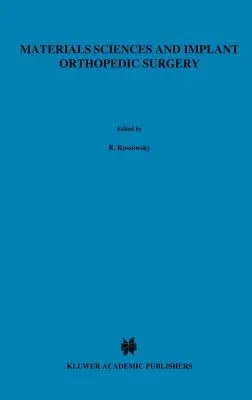Materials Sciences and Implant Orthopedic Surgery (1986)Hardcover - 1986, 31 October 1986

Qty
1
Turbo
Ships in 2 - 3 days
In Stock
Free Delivery
Cash on Delivery
15 Days
Free Returns
Secure Checkout

Part of Series
NATO Science Series E:
Part of Series
Mechanics, Dynamical Systems
Part of Series
NATO Science Series: E:
Part of Series
NATO Science Series E: (Closed)
Part of Series
NATO Science Series E (Closed):
Print Length
412 pages
Language
English
Publisher
Springer
Date Published
31 Oct 1986
ISBN-10
9024734096
ISBN-13
9789024734092
Description
Product Details
Book Edition:
1986
Book Format:
Hardcover
Country of Origin:
US
Date Published:
31 October 1986
Dimensions:
24.08 x
16.66 x
2.87 cm
ISBN-10:
9024734096
ISBN-13:
9789024734092
Language:
English
Location:
Dordrecht
Pages:
412
Publisher:
Series:
Weight:
757.5 gm